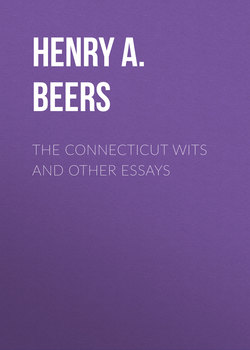Читать книгу The Connecticut Wits and Other Essays - Beers Henry Augustin - Страница 4
THE ART OF LETTER WRITING
ОглавлениеTHIS lecture was founded by Mr. George F. Dominick, of the Class of 1894, in memory of Daniel S. Lamont, private secretary to President Cleveland, and afterwards Secretary of War, during Mr. Cleveland’s second term of office. Mr. Dominick had a high regard for Lamont’s skill as a letter writer and in the composition of messages, despatches, and reports. It was his wish, not only to perpetuate the memory of his friend and to associate it with his own Alma Mater, but to give his memorial a shape which should mark his sense of the importance of the art of letter writing.
Mr. Dominick thought that Lamont was particularly happy in turning a phrase and that many of the expressions which passed current in Cleveland’s two presidencies were really of his secretary’s coinage. I don’t suppose that we are to transfer such locutions as “innocuous desuetude” and “pernicious activity” from the President to his secretary. They bear the stamp of their authorship. I fancy that Mr. Lamont’s good phrases took less room to turn in.
But however this may be, the founder of this lecture is certainly right in his regard for the art of letter writing. It is an important asset in any man’s equipment, and I have heard it said that the test of education is the ability to write a good letter. Merchants, manufacturers, and business men generally, in advertising for clerks or assistants, are apt to judge of the fitness of applicants for positions by the kind of letters that they write. If these are illegible, ill-spelled, badly punctuated and paragraphed, ungrammatical, confused, repetitious, ignorantly or illiterately expressed, they are usually fatal to their writers’ hopes of a place. This is not quite fair, for there is many a shrewd man of business who can’t write a good letter. But surely a college graduate may be justly expected to write correct English; and he is likely to be more often called on to use it in letters than in any other form of written composition. “The writing of letters,” says John Locke, “has so much to do in all the occurrences of human life, that no gentleman can avoid showing himself in this kind of writing.. which always lays him open to a severer examination of his breeding, sense and abilities than oral discourses whose transient faults.. more easily escape observation and censure.” Litera scripta manet.
